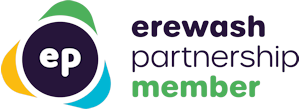I increasingly hear people say “we don’t need a website as we use of Facebook page to promote our business”, but is Facebook really a substitute for a website? I feel they both have their merits and ideally should be working together.
Company Facebook Page
A company’s Facebook page is a dynamic space for engaging with customers and creating a sense of community. Regular Posts keep followers informed about product launches, promotions, and exciting news. A mobile phone provider post about the latest smartphone’s advanced features and offer a limited-time discount.
Visual Content
This takes centre stage, capturing attention with eye-catching images and short videos. An adventure travel agency’s page could feature a video montage showcasing breathtaking destinations and adrenaline-pumping activities.
Customer Engagement
This is a priority, with the company responding promptly to comments and messages.
User-Generated Content
Followers of the company page can share their photos and stories. A pet supplies retailer might repost a heartwarming photo of a customer’s dog enjoying a new toy.
Live Streaming
This provides real-time connections. An online cooking school might live stream a chef teaching followers how to prepare a gourmet dish.
Links to Website
These can guide followers to valuable resources. A tech company might share a link to a blog post about the future of artificial intelligence, driving traffic to its website.
In summary
Information provided on a company Facebook page can be very up to date but transient. i.e. it may not be relevant for long.
Also the way in which the Facebook algorithm works means the information posted is not always easily retrievable even only a short time after posting.
Company Website
A company website serves as a digital hub of information, offering visitors a comprehensive understanding of the business, its offerings, and its values. The “About Us” section provides a deep dive into the company’s origins, mission, and the team driving its success. For instance, a technology startup’s website might narrate how it was founded by a group of passionate engineers aiming to revolutionise an industry through innovative solutions.
Products/Services
This section goes beyond mere promotion, offering intricate details about each product or service. This might include technical specifications, use cases, and case studies. For example, an e-commerce platform’s website could feature an in-depth breakdown of its various product categories, complete with detailed specifications and real-life customer testimonials and maybe downloadable technical data sheets.
Contact Information
This should be prominently displayed in the header and footer area of all pages, ensuring easy communication between visitors and the company. There should be multiple ways to get in touch, such as a contact form, direct email addresses, and even a live chat, feature where appropriate, for immediate assistance.
Blog/News
In this section, the company shares insightful articles and industry trends, showcasing its expertise and thought leadership. Social media can be linked to blog posts to bring visitors to the website
Testimonials/Reviews
These present firsthand accounts of satisfied customers who have benefitted from the company’s offerings.
Career Opportunities
Here a company can provide job seekers with a glimpse into the company culture, values, and available positions. The jobs can have downloadable job specifications and/or a facility to upload CV’s.
Legalities
Lastly, legalities are covered with a “Privacy Policy/Terms of Use/Cookie Policy” section, assuring visitors of data security and their rights while using the website.
Conclusion
In conclusion, while a company website offers detailed information and a structured presentation, a company Facebook page thrives on interaction, engagement, and building a sense of camaraderie among its followers.
By all means use a company Facebook page but ensure it is not a final destination but part of a journey to your website!

